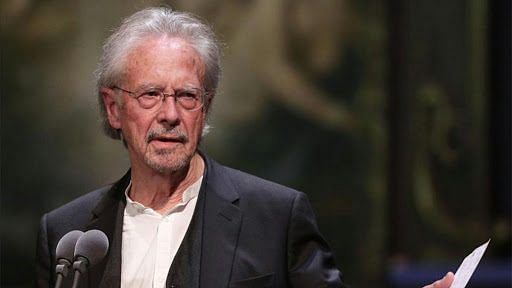New Delhi: Just hours after Peter Handke was announced as this year’s Nobel Prize winner for Literature, a host of eminent people criticised the Swedish Academy for their choice.
From the Albanian Prime Minister, Kosovo President to PEN America and author Salman Rushdie, the criticism was centered around the statements Handke has made in the past on Serbia.
An Austrian playwright, novelist and poet, Handke had once denied the Serbian massacre at Srebenica, and went on to compare Serbia’s fate to Jews during the Holocaust. He later apologised, calling it a “slip of tongue”.
During the Bosnian war, which began in 1992, the Serb army had engaged in an ‘ethnic-cleansing operation’ targeting Muslim communities. In 1995, Serb forces killed over 8,000 Muslim men and boys in Srebenica who were under the UN’s protection.
Handke delivered a heartfelt speech on Slobodan Milošević’s funeral, who served as president of Serbia (1989 to 1997) and the Federal Republic of Yugoslavia (1997 to 2000). In 2001, he was charged with genocide by the UN war crimes tribunal. Milošević was accused of participating in a “joint criminal enterprise, the purpose of which was the forcible and permanent removal of the majority of non-Serbs from large areas of the Republic of Bosnia-Hercegovina”.
According to the prosecution, Milošević was held “responsible for the expulsion” of over 2,50,000 people from Bosnia, and the “murder” of over 7,000 Muslims in Srebrenic in July 1995.
In 2016, speaking at Milošević’s funeral Handke claimed, “I don’t know the truth. But I look. I listen. I feel. I remember. This is why I am here today, close to Yugoslavia, close to Serbia, close to Slobodan Milošević.”
In 1999, Rushdie gave Handke the title of ‘International moron of the year’ for his “series of impassioned apologies for the genocidal regime of Slobodan Milošević”. On Thursday, Rushdie said he still stood by him remark.
PEN America questioned the Swedish academy’s decision, saying it was “dumbfounded by the selection of a writer who has used his public voice to undercut historical truth and offer public succor to perpetrators of genocide.”
"We are dumbfounded by the selection of a writer who has used his public voice to undercut historical truth & offer public succor to perpetrators of genocide," says PEN America President @Egangoonsquad on Peter Handke receiving Nobel Prize in Literature: https://t.co/sKfeqYszeL.
— PEN America (@PENamerica) October 10, 2019
Albania’s Foreign Minister Gent Cakaj took to Twitter, calling Handke a “genocide denier”, while Prime Minister Edi Rama said hearing the news made him want to “vomit”.
As a passionate believer in literature’s eternal beauty&power to enrich human experience&as a victim of ethnic cleansing&genocide, I’m appalled by the decision to award @NobelPrize in literature to a genocide denier. What an ignoble & shameful act we are witnessing in 2019!
— Gent Cakaj (@CakajGent) October 10, 2019
Never thought would feel to vomit because of a @NobelPrize but shamelessnes is becoming the normal part of the world we live?After disgraceful choice made from a moral authority like the Nobel Academy shame is sealed as a new value?NO we can’t become so numb to racism&genocide!
— Edi Rama (@ediramaal) October 10, 2019
Kosovo President Hashim Thaci also called out the Nobel Prize committee, saying the decision had inflicted “pain on countless victims” with their decision.
I remember in 1990s Václav Havel, Susan Sontag and many others knew that evil in Europe must be stopped. That genocide in Bosnia and Kosovo had a perpetrator. #Handke chose to support and defend perpetrators. The decision of @NobelPrize brought immense pain to countless victims.
— Hashim Thaçi (@HashimThaciRKS) October 10, 2019
While Handke’s political stance has earned him many critics, his literary style has several admirers.
Author Hari Kunzru, who has taught the Austrian novelist’s works, said, “He (Handke) is a fine writer, who combines great insight with shocking ethical blindness.” However, Kunzru did call Handke a “troubling choice” for a Nobel committee that is “trying to put the prize on track after recent scandals”.
In its citation, the Swedish Academy explained Handke had been recognised “for an influential work that with linguistic ingenuity has explored the periphery and the specificity of human experience”.
Handke expressed disbelief on his own nomination and added that the decision made by the Swedish Academy was a courageous one. The award means Handke will receive 9 million Swedish kronor (£740,000), as well as a medal and a diploma.
Also read: 2019 Chemistry Nobel awarded for work in development of lithium-ion battery






